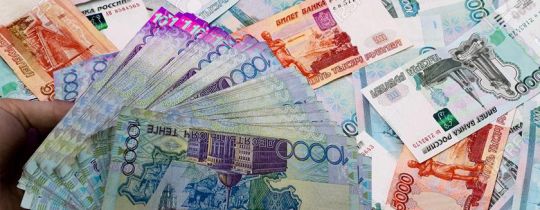One of the many problems facing Kazakhstan is the high level of abuse of work authority from the high-ranking officials. The reason is the dramatic decrease of the feedng trough due to crisis, while the domestic policy instability pushes people with access to the proverbial trough to try to “fill themselves up” before they are removed from their positions.
It is customary to assume that Kazakhstan and Russia are two closely-knit financial-economic realms, however each one of them has its own specificities. We asked the chief analyst of GK TeleTrade Piotr Pushkarev to compare processes taking place in Kazakh and Russian financial sectors.
In the past few months Russian ruble has strengthened its positions against US dollar and euro, the same happened to Kazakhstani tenge. Meanwhile Russian economic sources and many experts warn that the situation will change soon, and Russian ruble might lose its weight against US dollar. In Kazakhstan, however, ministries and National bank of KR don’t make any forecasts with regards to exchange rates, citing that the latter is determined by the markets.
With this article we are finishing our review of the report of the national bank of KR “Payment balance and foreign debt of Kazakhstan for the 9 months of 2016, published on regulator’s website on Feb. 28, 2017 and draw our conclusions on what exactly are the risks for Kazakhstan.
We continue to comment on the report of the National bank of Kazakhstan “Payment balance and foreign debt of Kazakh republic for 9 months of 2016”, published Feb. 28 2017 on the website of Kazkahstani regulator.






